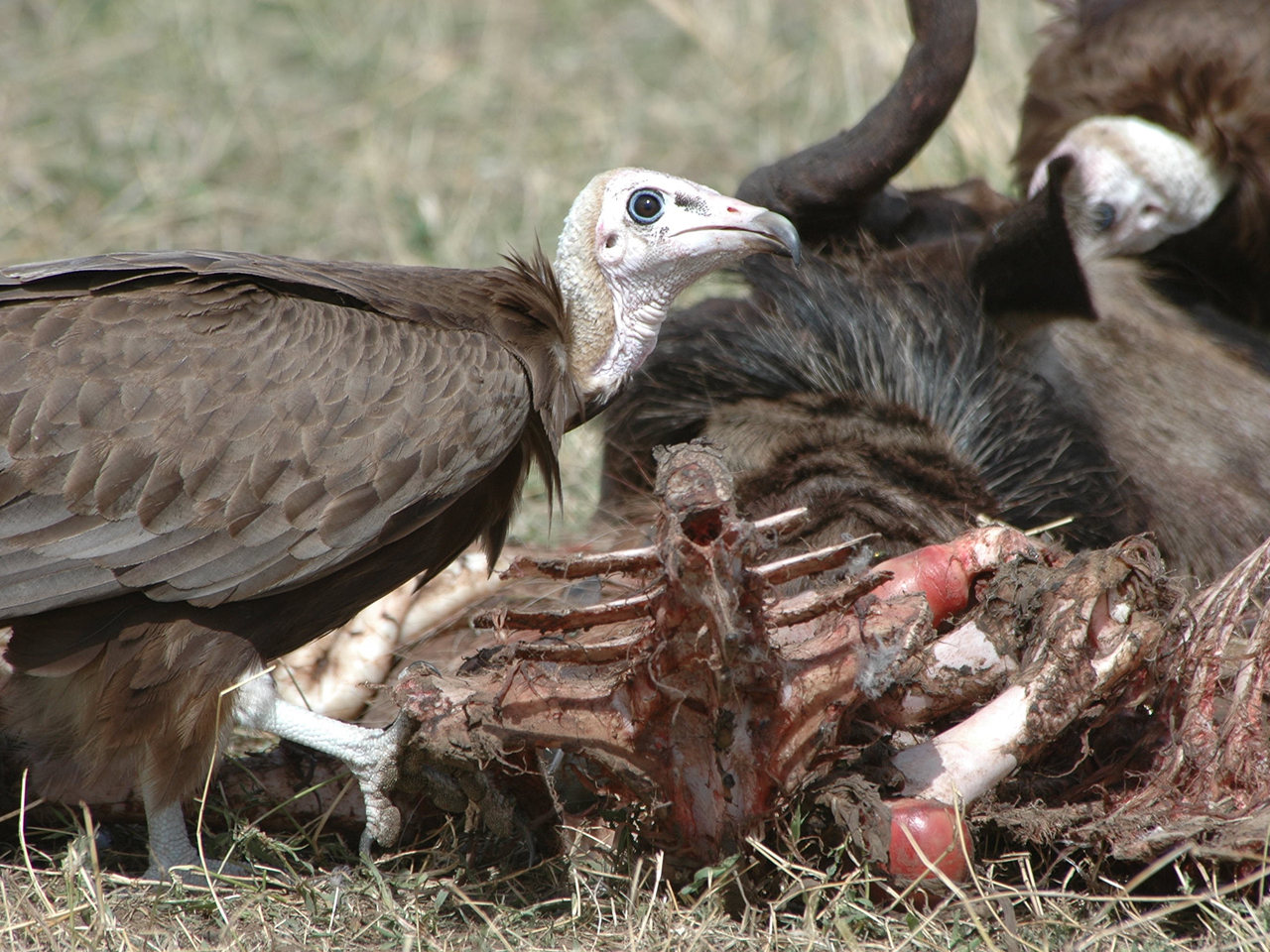
Evan Buechley
Hooded Vultures Dominate Scavenging Communities at Gambian Slaughterhouses
Organic waste from slaughterhouses across Africa provides abundant food sources for scavengers. In turn, the scavengers provide waste removal and disease prevention services. This seems to present a win-win situation for both humans and scavengers, yet little research has been conducted to understand scavenger community composition and dynamics at slaughterhouses. This information could help guide both conservation and waste management strategies.
A new publication in the African Journal of Ecology, co-authored by Northeast Africa Program Director Dr. Darcy Ogada and led by PhD student Michael Bode Agunbiade, looked at scavenger community dynamics in relation to waste availability and management at slaughterhouses in The Gambia. The researchers found that, as they expected, Critically Endangered Hooded Vultures were the most dominant scavenger across all sites and consumed the most waste. The vultures were able to outcompete most other scavengers, except for domestic dogs, which displaced the vultures from carrion.
These findings highlight the important role Hooded Vultures play in waste management and disease control in Gambian urban areas. Slaughterhouses often provide stable food sources for this Critically Endangered species, but there is a risk to this food dependence. If slaughterhouses modify their waste management practices in a way that inadvertently prevents access to Hooded Vultures, their populations could plummet. Upgrades to sanitary practices at slaughterhouses in Africa include the funneling of waste products into underground storage tanks, making crucial food resources inaccessible to vultures.
The research also found that slaughterhouses with poor fencing had a higher tendency to have domestic dogs, the only scavenger species in this study found to outcompete Hooded Vultures. Poor fencing at slaughterhouses could incidentally be increasing domestic dog food resources, while limiting access to Hooded Vultures. The researchers recommended improving fencing around feeding sites. By ensuring these vultures have access to a reliable, safe food source in urban areas, humans will continue to benefit from the ecosystem services this scavenger provides.






